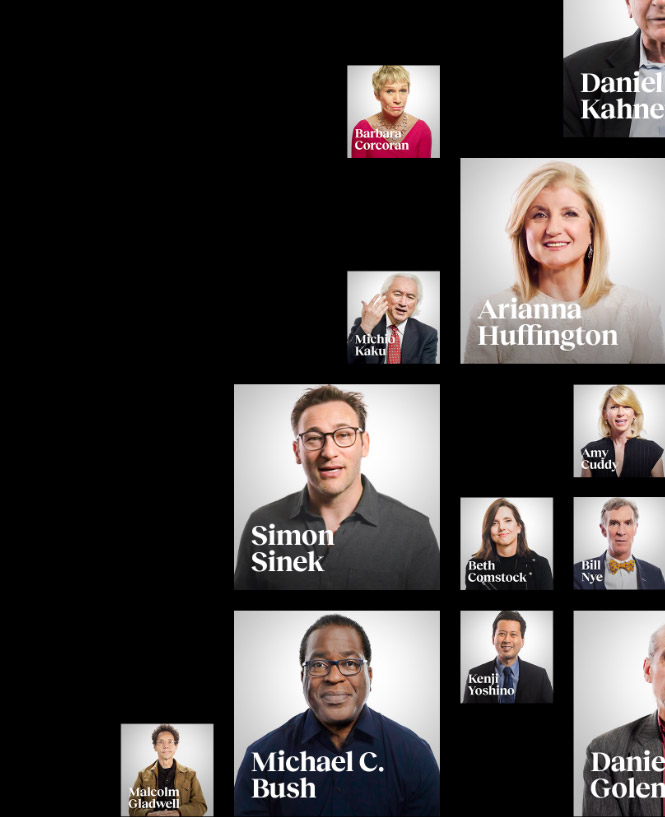Why AI can turn all jobs into BS
Sign up for the Big Think Business newsletter
Learn from the world’s greatest business experts
Discussions of the impact of AI on human fulfillment or well-being must begin by acknowledging that this is a highly contested proposition. Three broad types of health theories have become popular in philosophy. Hedonism, a view associated with the 18th century British philosopher Jeremy Bentham, states that the only thing that ultimately makes people better off is happiness and not suffering. Desire fulfilment, popular among contemporary economists, believes that the good of our lives is the fulfillment of desires or things we like, regardless of whether this makes us happy. Finally, the “goal list” theory identifies a set of values, the fulfillment of which in our lives makes us better regardless of whether we desire those values or find happiness in them. Common items on such a “goal list” include knowledge, friendship, success, sport and the experience of beauty. I am going to consider the validity of this third type of theory.
The defining characteristic of modernity is what the philosopher Charles Taylor called “the affirmation of ordinary life.” By “common life,” Taylor means “those parts of human life which relate to production and reproduction, that is, to work, to the manufacture of the necessaries of life, and to our life as sexual beings, including marriage and family.” Work is essential to normal life. And one of the distinguishing features of modernity is that ordinary life, including work, is considered a place for the true fulfillment of a person. This is in contrast to ancient and medieval thought which tended to denigrate ordinary life and saw the true fulfillment of man as found only in the wise or holy, people who have freed themselves from involvement in common with the production of the necessities of life.
Understood like that, work is not only important, it is a means of earning money. If its value could only be helped, the loss of employment opportunities could be fully offset by the creation of a Universal Basic Income. Instead, the idea is that there is value in working. In relation to the health goal list method, it is reasonable to assume that work helps to fulfill many of the basic values. [Philosophers] Anca Gheaus and Lisa Herzog selected children who achieved different types of excellence; community involvement; social experience; and to gain fame in the community. Joshua Cohen highlighted the values of the voice of the workers (that is, talking about what is produced and how), fulfilling an important purpose, and enjoying the work itself, in addition to the “normal” properties of work such as money, stability. , health and safety, etc.
These claims seem reasonable, but they raise the question of whether the primary property of a job consists of an unordered list, or whether there is a primary benefit, which is the primary benefit associated with the job and that What are some of the basic properties of the work? derivative or secondary. A person who can be trusted for the most basic value is achievement, that is, to use our human strength to face difficult challenges for a good end. And this core value increases as the challenges get tougher and the more the finish matters. Part of the importance of community or friendship at work is working with others to accomplish a difficult but important task. Moreover, an important factor of success is the self-esteem it promotes, which is an important factor in encouraging the citizens of a democratic society to look each other in the eye as equals.

Try Big Think+ for your business
Relevant content on essential skills, taught by world-class experts.
In fact, when we say that success is an important value of work, it does not mean that all work activities provide enough opportunities to use our energy to do difficult but important tasks. Some jobs may be repetitive, and their benefit to those who do them may be only the salary they pay. Furthermore, even if some activities, such as bomb disposal or garbage collection, offer opportunities for success, they may be so dangerous or incompatible that we must be willing to give up opportunities. which if those jobs could be done by a robot. However, in general, I think we should pay attention to the general statements of academic writers that certain jobs, which are usually of a type that do not require a university degree, offer a small opportunity of achieving it. Often the problem with these jobs is not the lack of opportunity for success, but the appalling working conditions, including the low wages paid to people otherwise described as “essential workers.”
Another major challenge posed by AI is that it forces us to investigate the sources of human success in the age of automation. This challenge arises for one of two reasons. Either there will be very few jobs for humans to do, as they will be taken over by AI. After all, even if we preserve human employment opportunities by deliberately preventing the deployment of AI, those doing the work may be overwhelmed by the sense of purposelessness. They will know that what they do can be done more efficiently, and more efficiently, with AI technology. This is similar to the feeling of helplessness that plagued those who did the unnecessary government jobs that created jobs in the Soviet Union or those who today do the useless jobs that the anthropologist, David Graeber, who called it “the works of wickedness.”
What will be the source of success in a world where work no longer fulfills that role for most people, even for most people?
In an essay entitled Economic Opportunities for our Grandchildrenpublished in 1930, John Maynard Keynes greeted the prospect of a jobless future with cautious optimism, suggesting that a drastic but unexpected adjustment of our moral outlook might be necessary—“we trained for a very long time to fight and not to be happy,” he said. said. Maybe so. But even then, with the goal list approach, just having fun can’t change success as part of a person’s good. And, of course, there is a special joy in striving and succeeding. So the loss of opportunity for success threatens to create a test gap. So the big question is: what will be the source of success in a world where work no longer fulfills that role for most people, even for most people?
Sign up for the Big Think Business newsletter
Learn from the world’s greatest business experts
#turn #jobs

